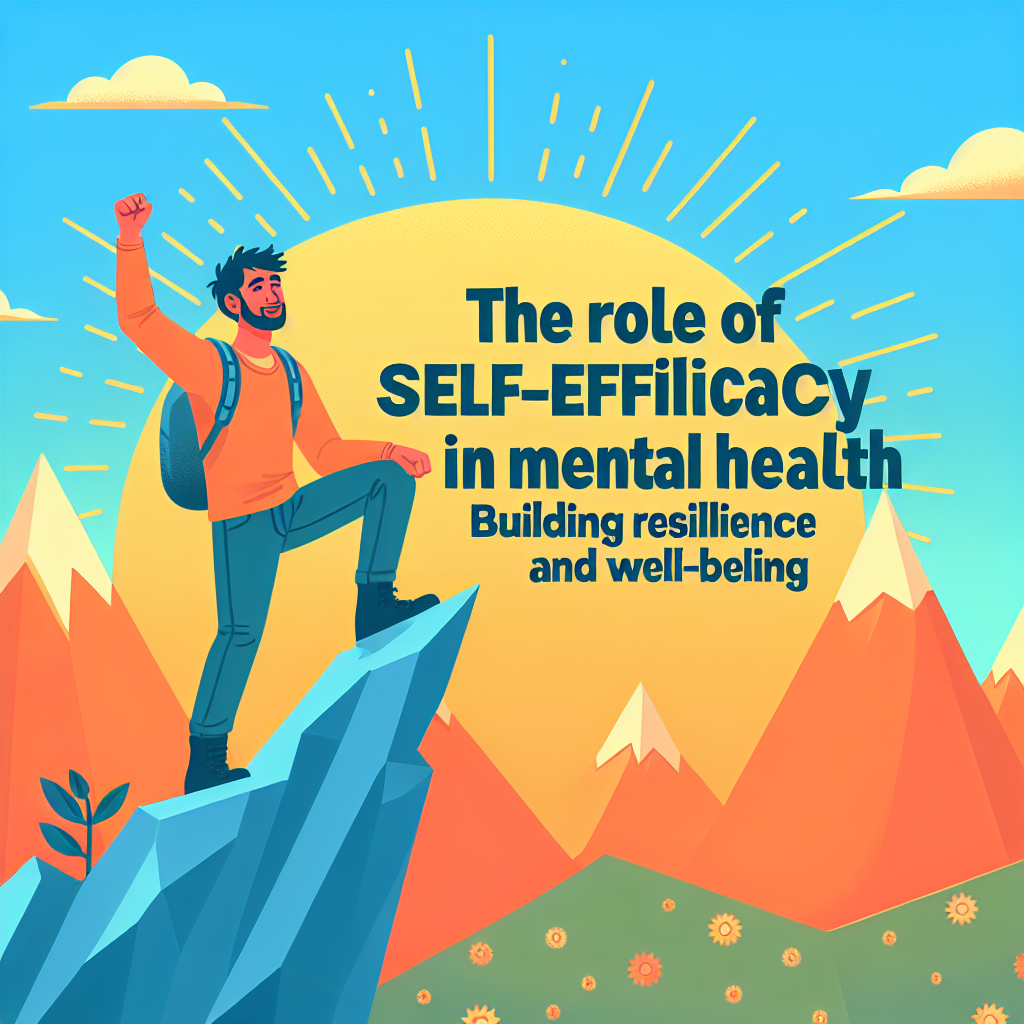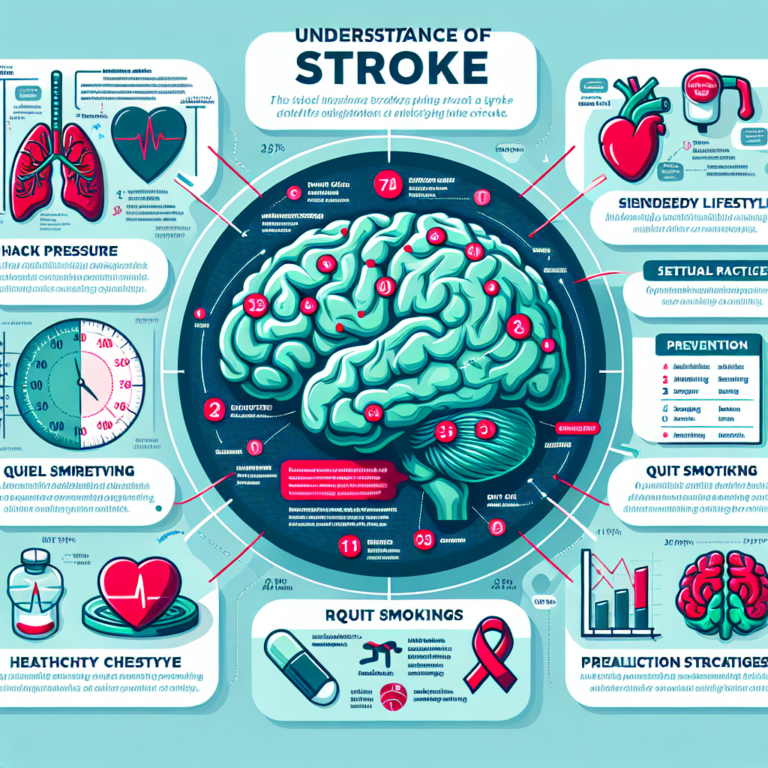
Introduction
In an era where mental health is gaining recognition as a fundamental aspect of overall well-being, the concept of self-efficacy has emerged as a cornerstone in understanding how individuals navigate life’s challenges. The Role of Self-Efficacy in Mental Health: Building Resilience and Well-Being is more than just a phrase; it encapsulates a vital truth about human potential. Self-efficacy plays a critical role in influencing our thoughts, feelings, and behaviors. When we believe in our capabilities, we’re better equipped to take on challenges, bounce back from adversity, and foster resilience.
Why This Matters Now
With rising rates of anxiety, depression, and stress-related disorders, it’s crucial to examine the psychological tools that help us cope. Self-efficacy—the belief in one’s ability to execute actions required to manage prospective situations—offers a formidable buffer against mental health struggles. It’s this empowering belief that can catalyze personal growth and foster emotional well-being. This article delves deep into the significance of self-efficacy in mental health, examining its role in building resilience, enhancing coping strategies, and ultimately leading to a fulfilling life.
Understanding Self-Efficacy
What is Self-Efficacy?
Self-efficacy is defined by psychologist Albert Bandura as an individual’s belief in their capacity to execute behaviors necessary to produce specific performance attainments. This belief can influence every aspect of a person’s life, from how they approach goals to their emotional resilience.
The Components of Self-Efficacy
Self-efficacy comprises four primary sources:
- Mastery Experiences: Successful experiences boost self-efficacy, while failures can undermine it.
- Vicarious Experiences: Observing others succeed can enhance one’s own belief in their capabilities.
- Social Persuasion: Encouragement from others can strengthen self-efficacy.
- Emotional and Physiological States: Positive mood and low stress can improve perceptions of self-efficacy.
The Role of Self-Efficacy in Mental Health: Building Resilience
Resilience Defined
Resilience refers to the ability to bounce back from adversity, adapt to change, and keep going in the face of challenges. It’s an essential trait that supports our mental health.
How Self-Efficacy Builds Resilience
Self-efficacy acts as a stabilizing mechanism for resilience. Here are some ways it contributes:
- Adaptive Coping Strategies: Individuals with high self-efficacy are more likely to employ effective coping mechanisms during stressful times.
- Increased Persistence: Believing in one’s abilities fosters perseverance, helping individuals push through obstacles.
- Reduced Anxiety and Stress: High self-efficacy can lead to lower levels of anxiety, as individuals believe they can manage challenges successfully.
Case Study: The Empowerment Program
A community initiative aimed at low-income youth demonstrated the power of self-efficacy in building resilience. By providing mentorship and success experiences, participants showed increased self-esteem, resilience, and a significant decline in reports of anxiety and stress. This emphasizes the role of self-efficacy in mental health by illustrating that empowering individuals can lead to substantial mental health benefits.
Real-World Applications of Self-Efficacy in Mental Health
Therapy and Counseling
Therapeutic approaches often emphasize enhancing self-efficacy as a mechanism for change. Cognitive-behavioral therapy (CBT) is founded on the principle that changing beliefs about oneself can lead to changes in behavior and emotional states.
- Example: A study showed that clients who worked on self-efficacy through goal-setting and skill-building reported greater satisfaction in therapy.
Educational Settings
In schools, improving self-efficacy can lead to better student performance and mental health. Programs that teach study skills and set achievable goals can enhance students’ belief in their abilities.
- Analysis: When students feel capable, they are more engaged and less likely to experience stress and anxiety related to academics.
The Emotional Component: Self-Efficacy and Mood
The Impact on Emotional Well-Being
Self-efficacy directly influences emotional states. High self-efficacy is correlated with positive emotions, decreased stress, and an increased sense of well-being.
Table: Emotional States and Self-Efficacy
| Emotional State | High Self-Efficacy | Low Self-Efficacy |
|---|---|---|
| Anxiety | Managed stress levels | Heightened anxiety levels |
| Confidence | Enhanced self-belief | Self-doubt |
| Resilience | Bounce back from challenges | Easily overwhelmed |
| Motivation | Increased drive to achieve | Low motivation |
Building Self-Efficacy: Practical Strategies
Strategies for Enhancing Self-Efficacy
- Set Achievable Goals: Start small. Achieving minor goals paves the way for larger accomplishments.
- Seek Feedback and Support: Surround yourself with encouraging individuals who uplift and believe in you.
- Reflect on Past Successes: Maintaining a success journal helps remind individuals of their capabilities and achievements.
- Visualize Success: Mental imagery can prepare an individual by creating a sense of familiarity and confidence in facing challenges.
Conclusion
The importance of the role of self-efficacy in mental health: building resilience and well-being cannot be overstated. As individuals cultivate a belief in their abilities, they not only foster resilience but also enhance their overall quality of life. By leveraging strategies that improve self-efficacy, everyone has the potential to rise above adversity and thrive.
Motivational Takeaway
Believe in your ability to influence your journey. Self-efficacy isn’t just a concept; it’s a mindset that can transform your approach to challenges and lead you to a more fulfilling life. Take small steps, seek support, and never underestimate the incredible power of believing in yourself.
FAQs
1. What are some signs of low self-efficacy?
Low self-efficacy can manifest as feelings of helplessness, avoidance of challenges, and a tendency to give up easily. Individuals may also experience high stress and anxiety levels.
2. Can self-efficacy fluctuate over time?
Yes, self-efficacy can change based on experiences, environment, and feedback. Successes can boost self-efficacy, while setbacks might diminish it.
3. Is self-efficacy linked to specific mental health conditions?
Yes, low self-efficacy is associated with several mental health issues, including anxiety, depression, and low self-esteem.
4. How long does it take to improve self-efficacy?
The timeline can vary based on the individual and the strategies employed. Building self-efficacy is a gradual process that can take time and practice.
5. Are there any specific therapies designed to enhance self-efficacy?
Yes, therapies like Cognitive Behavioral Therapy (CBT) often focus on changing negative beliefs and fostering self-efficacy, making it a valuable approach in mental health treatment.
By understanding and applying the principles of self-efficacy, individuals can better equip themselves to tackle life’s challenges, enhance their mental resilience, and ultimately enjoy richer well-being. Embracing the role of self-efficacy in mental health: building resilience and well-being is not just about surviving; it’s about thriving.















